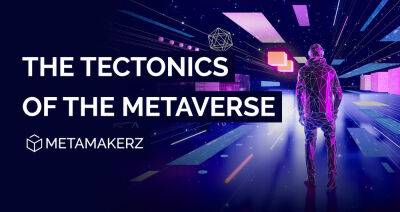What is ApeCoin and how does it work?
The first quarter of 2022 was abuzz with the talks about ApeCoin (APE), a cryptocurrency adopted to be the native coin of Bored Ape Yacht Club (BAYC), developed by Yuga Labs. Since the ApeCoin DAO came into being in April 2021, the BAYC has been among the top nonfungible token (NFT) collections with a vibrant community.
The BAYC collection showcases apes that seemingly look bored. Depending on your mood and choice, you can choose these apes down to the tiniest details. Investors across the world have put their money into these artworks and the buyers include the likes of Justin Bieber and Eminem.
As an ERC-20 governance and utility token of the APE ecosystem, ApeCoin is administered by a decentralized autonomous organization, or DAO. Anyone holding the coin is allowed to cast their vote on the relevant governance decisions.
Related: Types of DAOs and how to create a decentralized autonomous organization
The fact that APE is adopted by Yuga Labs gives it heft, as it also has CryptoPunks and Meebits, two other frontline NFT projects.
You might be interested in who is behind ApeCoin. The community holders of ApeCoin and various products/services using the cryptocurrency collectively make up the APE ecosystem. Yuga Labs, founded in 2021 and headquartered in Miami, Florida, is a prominent name in NFTs and digital collectibles.
Acclaimed as a creator of the Bored Ape Yacht Club, Yuga Labs serves as a community member in the ApeCoin DAO. They have adopted ApeCoin as their primary token in the projects they undertake. Let’s learn concise information about the NFT collections that are a part of the APE ecosystem.
The BAYC
Launched in April 2021, Bored Ape Yacht Club (BAYC) features 10,000 unique Apes residing on the Ethereum blockchain.
Read more on cointelegraph.com








![Avalanche [AVAX] traders can check these metrics before going short - ambcrypto.com - city Santimentthe](https://finance-news.co/storage/thumbs_400/img/2022/6/26/31219_k0gud.jpg)

![Did Avalanche [AVAX] investors go AWOL after the 43% crash - ambcrypto.com](https://finance-news.co/storage/thumbs_400/img/2022/6/26/31217_9ma.jpg)



![Decoding the reasons behind Chainlink’s [LINK] recovery from crash - ambcrypto.com](https://finance-news.co/storage/thumbs_400/img/2022/6/26/31213_eah8e.jpg)


![Is Bitcoin [BTC] doing enough to allure deeply-affected miners - ambcrypto.com](https://finance-news.co/storage/thumbs_400/img/2022/6/26/31210_sp5u.jpg)




